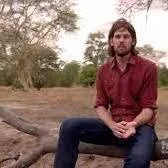ROB PRINGLE: Exploring the Complex Web of Ecology and Conservation - Highlights
/Ecology & Evolutionary Biology Professor Princeton University · Pringle Lab
For nature and natural beauty to survive, people have to want it. If they don’t ever experience it, why should they want it? What could you see of value in it, something that you not only have never experienced but don’t ever expect to. We intellectually know that the Amazon is an important thing because it stores carbon and it’s home to many species, but I’ve been there. That’s a different thing entirely to be able to appreciate it on that level and care about it for the sheer beauty and magic and joy of being in a place that’s still so big and so wild. So that I think is the most important thing for the next generation.













